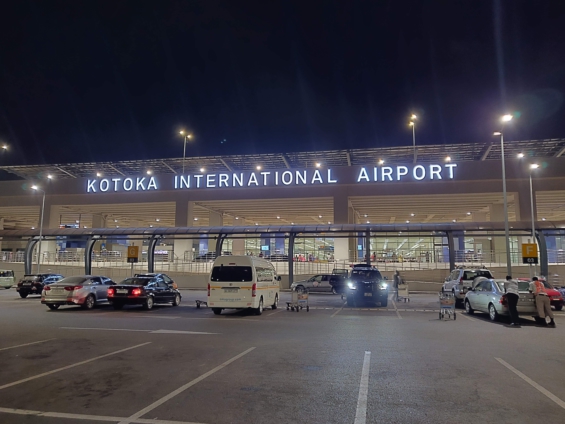Criticism on Free SHS Must Cease – Akufo-Addo
President Akufo-Addo has urged critics to shift their focus from criticizing the Free SHS policy towards finding ways to enhance its effectiveness. During his national address, he emphasized that the Free SHS initiative has been successful and transformative, providing educational opportunities that go beyond the basic level of formal education.
The President defended the Free SHS policy, highlighting its achievement in unearthing talents that might have otherwise been overlooked. He praised the program for dispelling fears of declining educational standards, especially evidenced by the positive outcomes reflected in the 2023 WASSCE results.
Related To This: Gov't Must Acknowledge Funding Issues Surrounding Free SHS - IFEST
Acknowledging the policy's impact, President Akufo-Addo expressed gratitude for the program's contribution to the development of a more skilled workforce. He emphasized that even for students who do not pursue further education after Senior High School, the enhanced education and self-confidence gained through Free SHS make a valuable contribution to the workforce.
Since its inception in 2017, the Free SHS policy has benefitted over 5.7 million Ghanaian students, as reported by Africa Education Watch (Eduwatch). The significant rise in secondary school enrolment, from 813,448 to 1.3 million students, is attributed to the implementation of Free SHS.
However, despite its successes, the policy has faced criticism and challenges. Institutions like the Institute of Statistical, Social, and Economic Research (ISSER) have raised concerns about the financial sustainability and quality issues of the program. ISSER has emphasized the need for a review, particularly focusing on the fiscal constraints and increasing teacher-student ratios affecting learning outcomes.
Acknowledging the policy's impact, President Akufo-Addo expressed gratitude for the program's contribution to the development of a more skilled workforce. He emphasized that even for students who do not pursue further education after Senior High School, the enhanced education and self-confidence gained through Free SHS make a valuable contribution to the workforce.
Since its inception in 2017, the Free SHS policy has benefitted over 5.7 million Ghanaian students, as reported by Africa Education Watch (Eduwatch). The significant rise in secondary school enrolment, from 813,448 to 1.3 million students, is attributed to the implementation of Free SHS.
However, despite its successes, the policy has faced criticism and challenges. Institutions like the Institute of Statistical, Social, and Economic Research (ISSER) have raised concerns about the financial sustainability and quality issues of the program. ISSER has emphasized the need for a review, particularly focusing on the fiscal constraints and increasing teacher-student ratios affecting learning outcomes.
Related To This: Review Free SHS For Parents To Assist You - NUGS To Government
In seeking to address these challenges, recommendations from institutions like the World Bank have emphasized means-testing, cost-sharing arrangements, and improved funding mechanisms to enhance the long-term viability and quality of the Free SHS program.
Dr. Peter Anti of the Institute for Education Services (IFEST) underscored the importance of recognizing and addressing funding constraints in the Free SHS program. He emphasized the need for infrastructure improvements and proactive planning to accommodate the surge in student enrollment effectively.
Dr. Anti called for accountability among educational leaders to tackle existing challenges within the education system, emphasizing the necessity of collaborative efforts to find sustainable solutions.
Related To This: "Free SHS Policy Must Be Redefined To Include Basic Infrastructure" - Dr. Owusu Sarkodie
In seeking to address these challenges, recommendations from institutions like the World Bank have emphasized means-testing, cost-sharing arrangements, and improved funding mechanisms to enhance the long-term viability and quality of the Free SHS program.
Dr. Peter Anti of the Institute for Education Services (IFEST) underscored the importance of recognizing and addressing funding constraints in the Free SHS program. He emphasized the need for infrastructure improvements and proactive planning to accommodate the surge in student enrollment effectively.
Dr. Anti called for accountability among educational leaders to tackle existing challenges within the education system, emphasizing the necessity of collaborative efforts to find sustainable solutions.
Related To This: "Free SHS Policy Must Be Redefined To Include Basic Infrastructure" - Dr. Owusu Sarkodie





Comments
Post a Comment